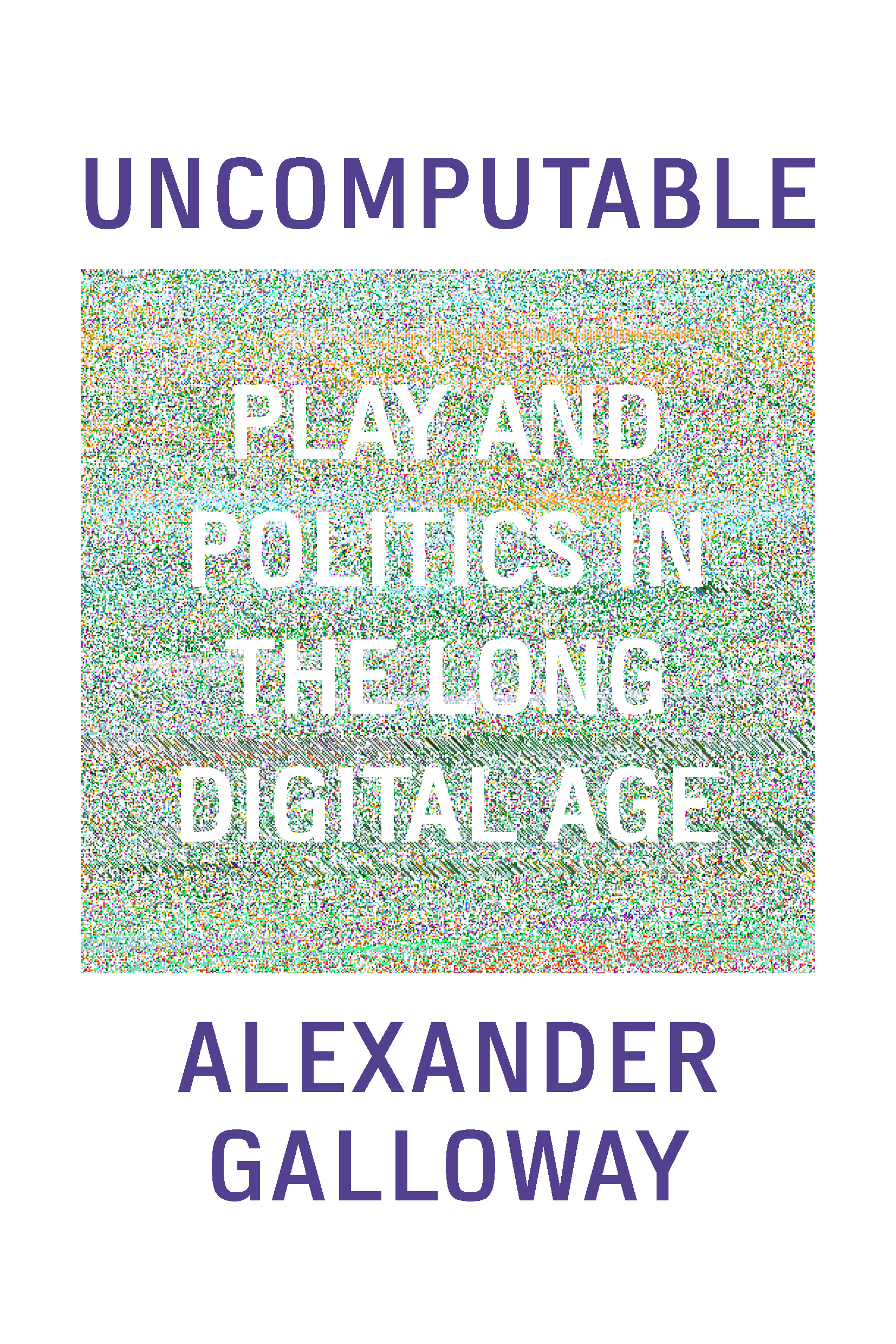The single thing I liked best about this book was an essayistic quality, an atmosphere roughly the opposite of mastery or finality. Galloway seems to be sharing his own persistent hunches about the edges of digital communication, its weaknesses, boundaries, or blind spots. The book proposes that they're worth thinking about.
They are. Readers who, like me, sense the force and speed with which digital culture infiltrates every aspect of our minds and memories, and who suspect, without knowing, that there will be both positive and negative consequences, will surely be eager to consider potential edges to the process, however tentative or fragmentary the evidence may be. It's a complex project. It seems to move between inside and outside, sharing both the programming challenges as they presented themselves to the remarkable historical figures he discusses, and some reflections on the implications as they might appear to one of us, now. He does not treat the history of computing thoroughly, perhaps not even quite fairly, but rather with purpose, selecting evidence to make a point. He tells good stories, featuring odd people with singular obsessions and unique gifts, tales of triumphs and failure, neatly unsettling our -- or at least my -- assumption that the development of computing had had a comparatively smooth historical trajectory. We learn of a room with dozens of cameras in the ceiling focussing on one individual, an sort of inverted panopticon; we follow the fortunes of various weavers thinking -- or playing -- with the possibilities of automating the process of making complex designs in fabric; we examine the Game of War, designed by Guy Debord (1931-1994), who is more likely to be known to most of us as a founding member of the Situationist International and author of Society of the Spectacle, rather than as a designer of gaming algorithms.
Particularly in his discussion of Debord, Galloway speaks from the "inside," as a programmer able to sense the scale of a given mathematical conundrum, and even to "take the reins," in some cases, to translate the "leftovers" or wreckage of an incomplete programming effort, adapt it into contemporary conventions, and keep working on it. The result is in some sense a resolution, but inevitably also a revelation about then and now, or between us - and them, readers who are not programmers and others who are.
The "uncomputable" of the title has no one crisp definition. At the beginning, Galloway runs through a series of possible synonyms for the "excluded term", a mode of being in which discrete symbols do not take hold, or at least do not hold sway..." (1) "intuition," aesthetic experience" "flesh," or "affect...a certain poetry, mysticism or romanticism. Or it might simply be life, mundane and unexceptional". I found myself drawn to "aesthetic," defined as an embodied, person-shaped perception, specific to one human body -- each to his own. The final paragraph champions scholars and students in the humanities and liberal arts, "outgunned and outclassed by capital," calling them -- meaning us, surely -- a "weak force" (term from François Lauelle). Weak as the force may be, however, it "grants us access to the generic commonality of history and society and the various aesthetic and cultural phenomena that not only populate this history but, as its flesh and blood, are history itself." (258)

